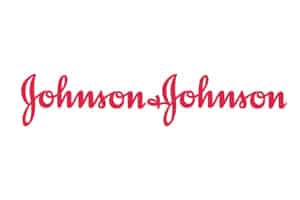 Johnson & Johnson has said it has started enrolling volunteers into a trial of its HIV vaccine after encouraging results in non-human primates.
Johnson & Johnson has said it has started enrolling volunteers into a trial of its HIV vaccine after encouraging results in non-human primates.
Preclinical data reported in the journal Science suggests the vaccine was able to provide complete protection from SIV – a virus similar to HIV that infects primates that is much more infectious than its human counterpart – in 50% of monkeys who were repeatedly exposed to infection.
Typically, vaccines are given in multiple doses – one to prime the immune system and subsequent doses to increase the response in a process known as ‘prime-boost’. Generally the same vaccine is used each time, but J&J and its scientific collaborators are investigating whether changing the formulation of the vaccine antigens during the regimen – a ‘heterologous prime boost’ – can improve immune responses.
In the case of J&J’s vaccine, the regimen is an adenovirus serotype 26 (Ad26) vectored vaccine to prime the immune system, followed by a boost with a purified HIV envelope protein. The company has used a similar approach to its Ebola vaccine that is now in phase I trials.
The preclinical study involved 12 monkeys who were injected with the prime dose only, 12 who got the prime-boost regimen and eight given placebo, with all the subjects then exposed to six doses of SIV.
Two of the 12 monkeys given the prime dose alone were SIV-free at the end of the trial, while all those given placebo contracted the infection. The prime-boost regimen protection six of 12 monkeys. Moreover, blood taken from monkeys that tested negative for SIV was given to other monkeys and did not seem to transmit the virus.
The HIV vaccine will be tested in a phase I/IIa trial involving around 400 healthy, HIV-uninfected volunteers, initially from the US and Rwanda but with additional clinical sites in South Africa, Uganda and Thailand due to start recruiting volunteers soon.
“Despite great progress in HIV treatments, HIV remains one of the greatest global health threats of our time with millions continuing to be infected each year,” said Paul Stoffels, chief scientific officer of J&J’s Janssen division.
“Our ultimate goal is to develop a vaccine that prevents HIV in the first place.”
While still in the early stages, the positive non-human primate data is welcome positive news in the HIV vaccine field, which has seen a string of disappointments in recent years.
A phase III programme for VaxGen’s AIDSVAX candidate ended in failure in 2004 while another study (HVTN 505) of a ‘homologous’ prime-boost vaccination approach developed by the US National Institute of Allergy and Infectious Diseases – which used the same vaccine formulation for each shot – was terminated due to lack of efficacy in 2013.
A trial that combined AIDSVAX with a Sanofi Pasteur candidate called ALVAC HIV (vCP1521) showed modest protective efficacy in a Thai trial reported in 2013 but has been held back by a lack of funding, according to the Global Solutions for Infectious Diseases (GSID) organisation that owns rights to the vaccine.
Scarcity of funding is also threatening a Russian HIV vaccine candidate called CombiHIVvac, which is heading for phase II testing.




